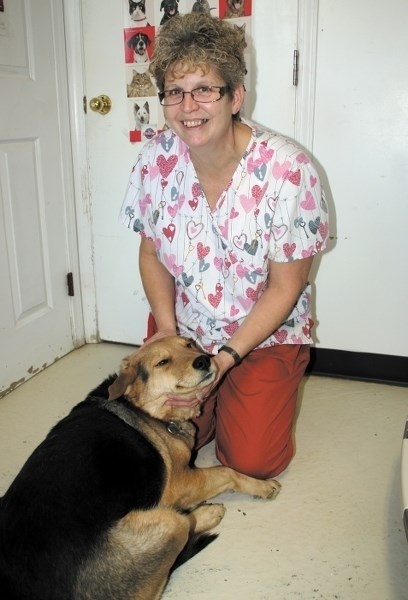“Animals are not a Christmas gift, they're a life time commitment.” As the manager of the Bonnyville SPCA, Heather Mutch knows first hand what happens when pets are given as gifts.
“I've seen it before, people will come in the week before Christmas and if we have an animal they like they'll pick it up for Christmas. Generally by Feb. 15, those pets adopted out at Christmas are back in the shelter environment.”
Mutch said the person receiving the animal isn't always prepared for the responsibility that comes with having a pet, and the novelty of having a puppy or a kitten will eventually wear off.
“If you're serious about getting a pet you will still come back after Christmas, with all of the supplies you've already purchased and be prepared for the pet.”
Unlike some online sites where people will give away animals for free, Mutch said the SPCA doesn't just want their animals gone they want them to find a forever home. That's why they have an application process in place. Those looking to adopt an animal not only have to submit an application and pay the adoption fee, but also sit down and speak with the staff prior to being approved for adoption.
Since November 2013, the Bonnyville SPCA has cared for 143 dogs and 153 cats. Over the course of the past year they have adopted out 55 dogs, 80 cats and reunited 59 pets with their owners.
Mutch credits the Internet and social media for allowing them to adopt out animals to people across the country and, in some certain cases, the United States.
“A couple years ago, a lady in Quebec saw the dog she wanted from our shelter online. She had relatives that lived here, so they came, picked up the dog and brought it to her. We have people from the States that will email us and they will actually pay the airfare for the animal.”
As far as adoptions go, Mutch says in August they had 31 in one month — the highest she's ever seen since she started at the SPCA eight years ago.
In an effort to find more animals their forever home, they started having adoption sleepovers. The program is geared towards those with children or who have other pets already in the home as a way of making sure the new addition would adjust to its new surroundings. You still have to be approved and pay the adoption fee, but there is a five to seven day period to decide if the animal, or having a pet at all, is right for you.
For farmers or people living in the country who want cats for mousers, there is also the Barnyard Buddy program, which lowers the adoption fee for a cat to $75.
While adoption fees account for a portion of their revenue, Mutch said people don't realize how much it costs to run the shelter.
“Any expense that any person or business has, we have as well. We aren't government funded, we don't get our utilities for free and our vet bills are very high.”
On average, costs for the shelter run around $12,000 per month. That figure includes heat, power, cleaning supplies, animal care and staffing.
A large part of the Bonnyville SPCA's revenue comes from people dropping off their empty bottles at the shelter or the Dove Centre. Mutch estimates they've received around $15,000 from empty bottles since March of this year. Other streams of revenue come from fundraisers, special events and donations from the community.
“When donations are given, we ask whether they want it to go towards the general costs or the Jenny Injured Animal Fund. That fund is set aside to care for animals that are hurt or need any special medical attention.”
Mutch said many people don't want to surrender their animals properly because it means paying a surrender fee, but that money is needed for the care of the animal.
“We had a couple kittens brought in recently that were abandoned in a duplex. The people just moved out and left the kittens,” Mutch said. “We get animals dropped off in the yard quite often, we've even had puppies thrown over the fence.”
When animals arrive at the SPCA, both dogs and cats get their vaccinations and spend between five and ten days in the isolation room so that staff can monitor them. Once they're done in the isolation room, the animal is moved to one of the adoptable rooms where the general public can come and meet them.
The more background they have on an animal, the easier it makes that process and getting them adopted. Education plays a huge role in having animals brought in to the shelter properly, Mutch said.
“A lot of people still think that if they bring their dog in to the SPCA we're going to euthanize them. No, we don't. If we don't have to, we won't. Unfortunately though, if a dog is vicious and we can't get into their cage, we can't keep them as an adoptable dog.”
Mutch believes it's important to start educating kids at a young age. Staff at the Bonnyville SPCA tour school groups to show the students that the shelter is here to help the animals, and teach them about the responsibilities of owning a pet.
“It's the responsibility of your life. If you want a dog and that dog wants to go outside at 2 in the morning, then you have to get up and go outside with that dog.”
For more information, to volunteer or to inquire about adopting an animal, call the Bonnyville SPCA at 780-826-3230 or visit http://www.bonnyvillespca.ca/.



